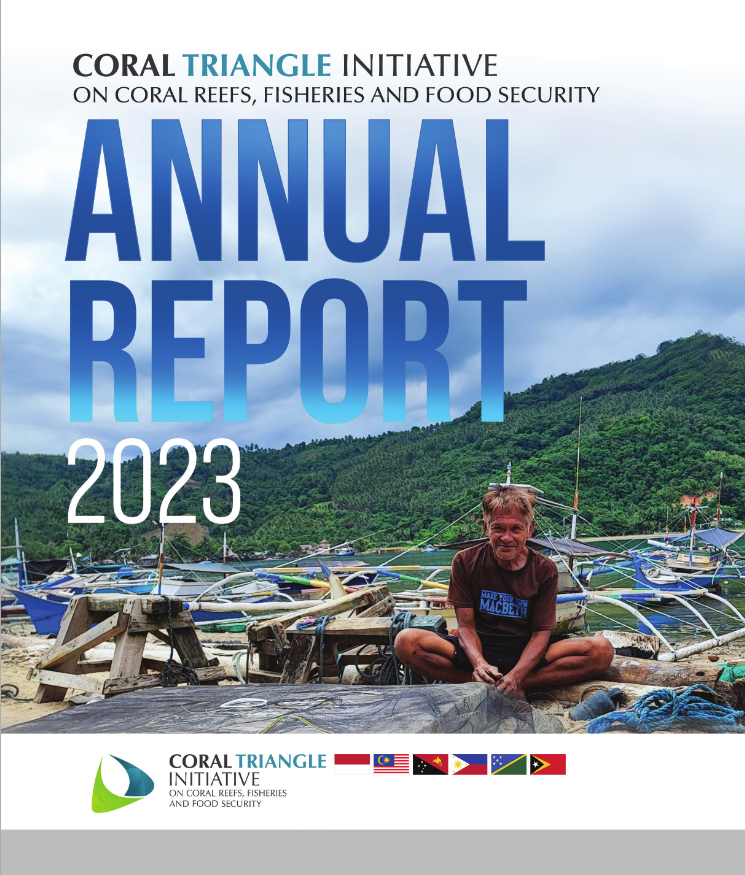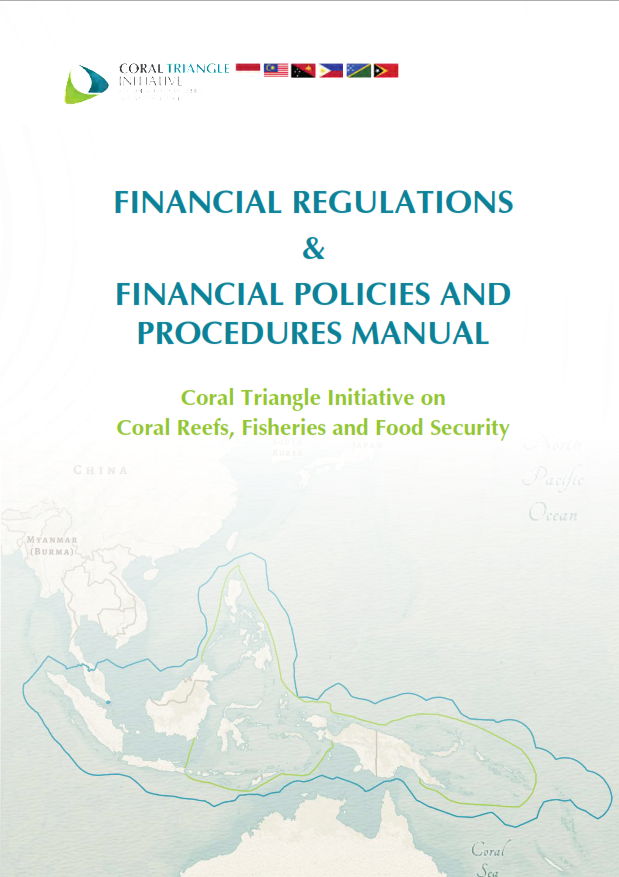Identification training supported for sustainable management of sharks and rays
Press Release
For immediate release
# The Coral Triangle Initiative on Coral Reefs, Fisheries, and Food Security (CTI-CFF), Indonesia’s Ministry of Marine Affairs and Fisheries (MMAF) and Wildlife Conservation Society (WCS) joined in its efforts to build on existing systems and expertise to further develop capacity for sharks and rays’ conservation in the Coral Triangle (CT) region.
# CTI-CFF Regional Secretariat Interim Executive Director Dr. Hendra Yusran Siry noted the importance of the training for it is aligned with one of the goals of the CTI-CFF’s Regional Plan of Action which is to improve the status of threatened species.
# Head of Marine and Fisheries Department of Nusa Tenggara Barat (NTB), Lalu Hamdi said that NTB provincial government has developed several initiatives for ocean to be healthy and fishers to be prosperous.
# Dr. Noviar Andayani, WCS Country Director-Indonesia Program, shared that one tool to ensure sustainability of sharks and rays’ fisheries is to do a comprehensive landing data monitoring, which provides accurate information for estimating stocks of sharks and rays and its fishing pressure.
Identification training supported
for sustainable management of sharks and rays
Lombok, Indonesia, 26 February 2019. Studies revealed that sharks and rays are faced with increasing population decline and up to-one quarter of shark and ray species are threatened with extinction. Overfishing is considered the main threat while the inadequacy of data on sharks and rays leads to their overexploitation and extinction which aggravates the situation.
Thus, the Coral Triangle Initiative on Coral Reefs, Fisheries, and Food Security (CTI-CFF), Indonesia’s Ministry of Marine Affairs and Fisheries (MMAF) and Wildlife Conservation Society (WCS) joined in its efforts to build on existing systems and expertise to further develop capacity for sharks and rays’ conservation in the Coral Triangle (CT) region. Particularly, CTI-CFF, MMAF and WCS are conducting the three-day regional training on identification of sharks and rays for relevant government institutions in CT region to enforce species protection laws and trade regulations as well as ensure legal and sustainable use and compliance with international and national regulations.
CTI-CFF Regional Secretariat Interim Executive Director Dr. Hendra Yusran Siry noted the importance of the training for it is aligned with one of the goals of the CTI-CFF’s Regional Plan of Action which is to improve the status of threatened species. “The training is an important step towards ensuring a wider reach of knowledge towards discussing the pressing issues affecting assorted and threatened species,” Dr. Siry said.
Head of Marine and Fisheries Department of Nusa Tenggara Barat (NTB), Lalu Hamdi said that traditional sharks and rays’s fisheries in NTB has been going on since mid-40’s as their main source of livelihood. “Sharks and rays fisheries has been an integral part of most fishing communities in NTB, but we want the ocean to be healthy and fishers to be prosperous. We have reserved 241,051 ha or 8.5% of our marine area for regional marine conservation area, developing action plan for management and utilization of sharks and rays, disseminating information of protected species of shark-rays as well as develop shark & rays tourism in Saleh Bay.”
Mr. Andi Rusandi, Indonesian MMAF’s Director of Marine Conservation and Biodiversity, noted that sharks and rays conservation is a priority of the ministry since 2015. The diversity of sharks has raised challenges in the management and law enforcement aspect. Particularly on how to distinguish which species is protected or which species is not. He said that the Ministry is in the process of finalizing the draft ministerial decree that will prohibit capture of all sharks inhabiting Indonesia’s marine protected areas which covers more than 20 million hectares of the country’s waters. “Moreover, we have imposed full protection for whale shark, manta ray, and sawfish. We also have our own National Action Plan for Sharks and Rays Conservation and Management 2016 -2020,” Mr. Rusandi added.
On the other hand, Dr. Noviar Andayani, WCS Country Director-Indonesia Program said that WCS is working with the government to strengthen shark and ray fisheries management and improving national capacities to implement the Convention on International Trade in Endangered Species of Wild Fauna and Flora (CITES) protocol.
“Globally, WCS commits to establish science-based, comprehensive, feasible shark management regimes, including in the CT area. By 2030, WCS expects the conservation status of 75% of the world’s sharks and rays to have improved, with global declines among those species slowed and extinctions prevented,” Dr. Andayani said.
Dr. Andayani shared that one tool to ensure sustainability of sharks and rays’ fisheries is to do a comprehensive landing monitoring data, which provides accurate information for estimating stocks of sharks and rays and its fishing pressure. “The information generated can be a basis for policymakers to manage sharks and rays,” she said.
The training is held in Lombok, West-Nusa Tenggara, Indonesia with participants coming the CT6 member countries – Indonesia, Malaysia, Papua New Guinea, Philippines, Solomon Islands and Timor-Leste. (Janet Rosalie Anne H. Polita)
---The end---
About Coral Triangle & Marine Biodiversity
·
The CT region is located along the equator at the confluence of the Western Pacific and Indian Oceans crosses waters of Indonesia, Malaysia, the Philippines, Papua New Guinea, Timor Leste and Solomon Islands. Covering only 1.6% of the planet’s oceanic area, there is broad scientific consensus that the CT represents the global epicenter of marine life abundance and diversity -- with 76% of all known coral species, 37% of all known coral reef fish species, 53% of the world’s coral reefs.
·
Sharks and rays are increasingly acknowledged as ecologically and economically important species. Ecologically, sharks comprise one of the most ancient, widespread and diverse clades of predators (White & Last 2012). Sharks have evolved to serve a wide variety of ecosystem functions, serving as apex predators and mesopredators (Heupel et al. 2014), and with certain species playing critical roles in maintaining functional and productive ocean ecosystems (e.g. Myers et al. 2007, Ferretti et al. 2010). Economically, sharks and rays provide an important source of income and food security for hundreds of fishing communities and thousands of people.
About CTI-CFF
The Coral Triangle Initiative on Coral Reefs, Fisheries, and Food Security (CTI -CFF) is a multilateral partnership of six countries: Indonesia, Malaysia, Papua New Guinea, the Philippines, Solomon Islands, and Timor-Leste (CT6). The CT6 countries work together to sustain extraordinary marine and coastal resources by addressing crucial issues such as food security, climate change, and marine biodiversity. The CTI-CFF was established formally during the Leaders’ Summit in 2009 with approval of the leaders from the CT6 countries. They adopted the CTI Regional Plan of Action (CTI RPOA) which is a strategic action plan with five goals: (1) designation of effectively managed seascapes; (2) application of an ecosystem approach to fisheries management; (3) establishment of a fully functional marine protected area system; (4) strengthening climate change adaptation and resilience; and (5) improving the status of threatened marine species.
About Regional Secretariat
The Regional Secretariat (RS) of the CTI-CFF is mandated to promote regional cooperation, knowledge sharing, and learning facilities within the six member countries of the Coral Triangle. The RS coordinates and monitors the progress of the implementation of the Regional Plan of Action (RPOA) goals. The RS coordinates and supports official meetings and events linked to the CTI-CFF process, including cross-cutting services in support of monitoring and evaluation, financial coordination, information management and outreach. It also coordinates the implementation of CTI-CFF RPOA and provides support to, and coordination with, NCCs, including advising the CTI-CSO on emerging opportunities and priorities to reaching the goals and targets of the RPOA. The RS also acts as the channel of communication and information sharing and foster networking among the Parties, CTI Partners and other organizations and donors in the efforts to promote the objectives of the CTI-CFF. The Regional Secretariat is based in Manado, North Sulawesi, Indonesia.
###
Media Contact:
Janet Rosalie Anne H. Polita
Communication & Information Manager
CTI-CFF Regional Secretariat www.coraltriangleinitiative.org
Email: jpolita@cticff.org; regional.secretariat@cticff.org



